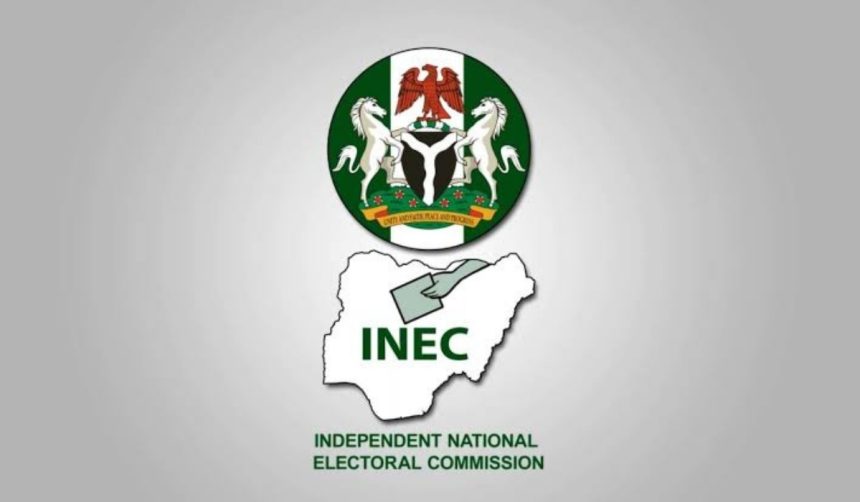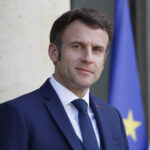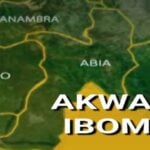… says aspirants’ action breaches provisions of the Electoral Act
The Independent National Electoral Commission (INEC) has expressed dissatisfaction over early campaigns by aspirants ahead of the 2027 general elections.
Chairman of the Board of Electoral Institute, Professor Abdullahi Abdu Zuru, made the declaration on Wednesday at a stakeholders’ session with the leadership of political parties and other stakeholders in the electoral process held in Abuja.
The INEC National Commissioner maintained that the actions of the aspirants were clear breaches of the provisions of the Electoral Act, which stipulates that campaigns for elective offices “shall commence 150 days before polling day and end 24 hours prior to that day.”
He said:” Nigeria’s democracy is still in transition, and like every evolving system, faces serious challenges. One of the most worrying is the increasing resort to early campaigns by political actors and their surrogates in many forms.
“We have seen aspirants use cultural festivals and religious gatherings to drop hints about their ambitions, often disguised as appreciation or philanthropy. Billboards and branded vehicles sometimes appear with cleverly crafted slogans that stop just short of open solicitation but leave little doubt about the intent. More recently, social media influencers and content creators have become key players and fronts, flooding platforms such as Facebook, Instagram, TikTok, YouTube, and X with songs, skits, and hashtags that project particular aspirants many months before the passage of the law.
“The Electoral Act 2022 is clear on this matter. Section 94.—(1)”for the purpose of this act, the period of campaigning in public by every political party shall commence 150 days before polling day and end 24 hours prior to that day.
“This safeguard was introduced to ensure fairness, reduce political tension, and guarantee a level playing field for aspirants. Unfortunately, what we see today is an increasing determination to circumvent, stretch, and even undermine this law. Often, third-party actors such as associations, professional groups, religious groups or political support groups are used as convenient fronts for disguised early campaigning.”
The INEC National Chairman, who maintained that early campaigns by politicians distract from governance and erode confidence in the electoral process, dropped the hint that the Commission would consider sanctions to guarantee compliance.
“The implications of this trend are far-reaching. When aspirants or parties compete to dominate visibility long before the official campaign period, it distorts fairness and raises the cost of political competition. Moreover, it distracts from governance, as elected officials become more concerned with sustaining political relevance than delivering public service. Over time, it erodes public confidence in our electoral system and fuels cynicism about whether the law can truly be enforced.
“We must be frank in acknowledging the scale of the challenge and bold in designing solutions. We must refine the regulatory framework so that what constitutes premature or early campaigning is more clearly defined in today’s digital age. We must strengthen enforcement, ensuring that violations are detected early and sanctioned firmly, be it by political parties, individuals, or their proxies. We must engage media organisations and social media platforms, encouraging them to cooperate in moderating content that undermines the electoral timetable. And we must intensify civic education to enlighten citizens, especially the youth, on the dangers of endorsing and promoting early campaigns.
“Democracy thrives on fairness, order, and respect for the rules, regulations and guidelines governing the electoral process. Campaigns conducted within the timeframe stipulated by law ensure a more level playing field, reduce political tension, and enhance the credibility of elections. Respecting the law is not a limitation on political participation but an affirmation that our democracy is rooted in integrity, not expediency.”
In his own presentation, Chairman of the Commission, Professor Mahmood Yakubu, lamented that existing law makes it possible for politicians to indulge in the misdemeanour of early campaigns, as he noted that it was becoming impossible to enforce sanctions and inspire deterrence.
He said: “Quite correctly, Nigerians expect INEC, as registrar and regulator of political parties, to act in the face of the brazen breach of the law on early campaign. However, the major challenge for the Commission is the law itself. Section 94(2) of the Electoral Act 2022 imposes sanctions, albeit mild (a maximum amount of N500,000 on conviction), on any political party or a person acting on its behalf who engages in campaigns 24 hours before polling day. However, there is no sanction whatsoever concerning breaches for campaigns earlier than 150 days before an election. Here lies the challenge for the Commission in dealing with early campaigns by political parties, prospective candidates and their supporters.
“In a sense, the problem of the early campaign in Nigeria is not new. The seeming inability of the Commission and other regulatory agencies to deal with the menace within the ambit of the existing electoral legal framework calls for deep reflection. It is in this context that the Commission considered it appropriate to convene this meeting in which legislators, leaders of political parties, civil society organisations, experts, practitioners and regulators will brainstorm on the way forward.”
ALSO READ TOP STORIES FROM NIGERIAN TRIBUNE
WATCH TOP VIDEOS FROM NIGERIAN TRIBUNE TV
- Let’s Talk About SELF-AWARENESS
- Is Your Confidence Mistaken for Pride? Let’s talk about it
- Is Etiquette About Perfection…Or Just Not Being Rude?
- Top Psychologist Reveal 3 Signs You’re Struggling With Imposter Syndrome
- Do You Pick Up Work-Related Calls at Midnight or Never? Let’s Talk About Boundaries






